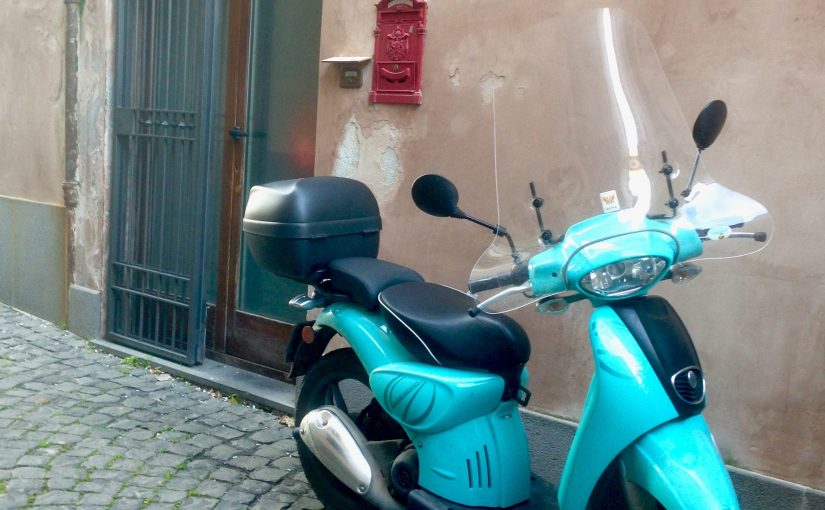About a year ago, I began to write a play. The seed for it was a scene I’d written for a summer acting class at the American Academy of Dramatic Arts in New York. It was one of ten “blank scenes” I created as exercises to encourage the student to make bold choices and stick with them for awhile, then commit to new choices… and so forth. As such, the scenes were purposely constructed with very little character detail and the barest minimum of plot. Some of them didn’t even have obviously sensible dialog. In that way, they were quite realistic.
At various points I’ve half-heartedly tried my hand at turning seven or eight of the scenes into an evening of ten minute plays, but I somehow lose interest before anything really begins to develop.
The scene that did suggest something larger about a year ago, features a Dorothy Parker-esque character and a much less complicated friend (or lover) going their separate ways. I’ve always enjoyed the repartee in that one, and have been curious to see where it might lead.
So, about a year ago, I began to write a play. That was during production for Colloquia (a play I’d already written) so the script only expanded as I had time to give it. I got maybe thirty pages in, became overwhelmed with other stuff, and let it sit.
Then in November, I picked it up again and cranked out another fifteen pages. I still had no idea where it was going, or – in any essential way – what it was about, but I rather liked what there was so far. Every time I read it, I wanted to know what happened next after the point the pages turn blank. That’s a good sign, but the pages stayed blank, and I remained curious.
About a week ago, I began to wonder if maybe the play ended during the lockdown. I pulled up the script, read it over a few times, and decided that no, it wasn’t a lockdown play. But I didn’t close the file, either, so on the way to other stuff I’d look at it, read bits, and continue to wonder.
On last night’s otherwise uneventful walk, it suddenly hit me that it was a lockdown play. All I had to do was adjust its calendar, and the lockdown would begin at almost exactly the point that I had put the script down as un-finishable. A rush of energy warmed my heart, and I understood that the play’s time had finally arrived.
The blank scene it’s based on I wrote in 1998.
I’ve often heard writers complain about being unable to find a suitable ending. I’ve more than complained about that myself, I consider it a personality disorder – always impulsively launching this or that project without a clue as to where I’m headed. I’ve learned to live with that habit, but a play is not life, and needs an ending. No matter how interesting you may find the characters, if at some point they refuse to resolve a story, it becomes impossible even to edit what you know still needs work. It’s just flashy dialog and a promising premise.
That was a good walk.
This morning I made notes on the specifics of what to change and how to approach the next section. From here on out, it’s all up to me, no more excuses. But I find it so interesting that the play was waiting for current events to inform it. Sometimes it is better to just do nothing.
The only person I passed last night lives on the corner of Via delle Donne and Via Angelo d’Orvieto. The house has a walled forecourt, and is built up in a fascinating assemblage of layers. But the best thing about that house is its dog.
He’s a smallish creature of no particular breed, but is pleasant to look at with uniformly tan fur. I’ve never seen him excited, he sniffs a little but mostly just walks. He nods as he passes, but asks for no favors. His master keeps him on an extendable leash, but the dog seldom wanders far enough to make the extra length necessary.
His master drives a Vespa, a scooter that features a platform for the driver’s feet. When the human readies himself to go somewhere on his motorino, the little dog takes his place on the platform, sits and waits. They go all around town like that, passing, I’m sure, any number of cats and other dogs, but the fellow never barks or lurches or is tempted to jump.
When I first saw the dog, I assumed a strict owner, that it wasn’t serenity he displayed, but the effects of oppression. I couldn’t imagine a dog so calm, so I manufactured blame. But no, the owner is kind and aware of what a special friend he has.
So, we don’t always know how things connect, what they mean, how they end, or how we get there – and I reckon that’s okay. We learn how to wait until the moment is ripe — when to act, when to do nothing — and that may be the most valuable lesson we have in life. If that’s true, these are important times.
